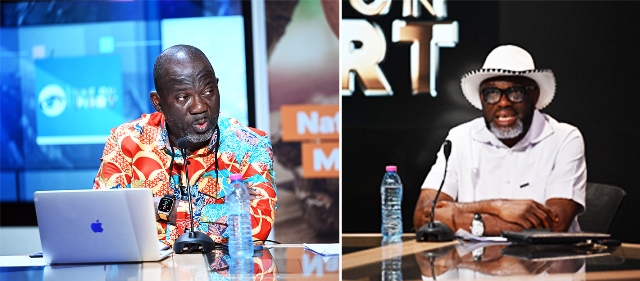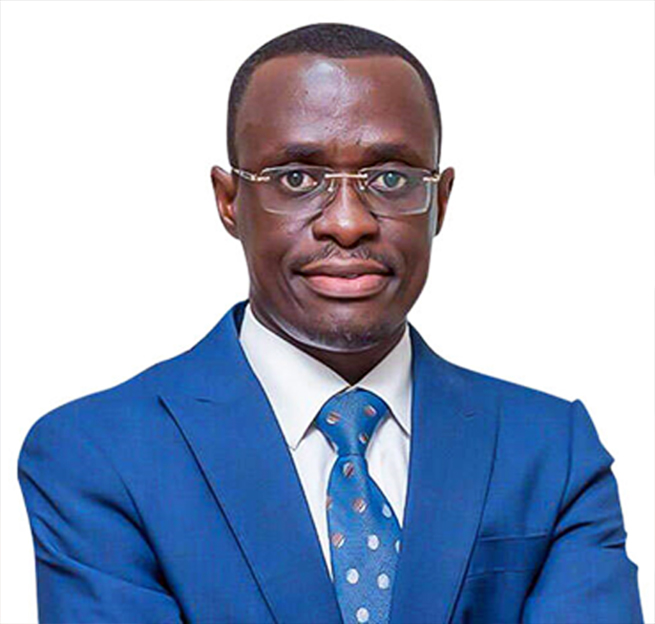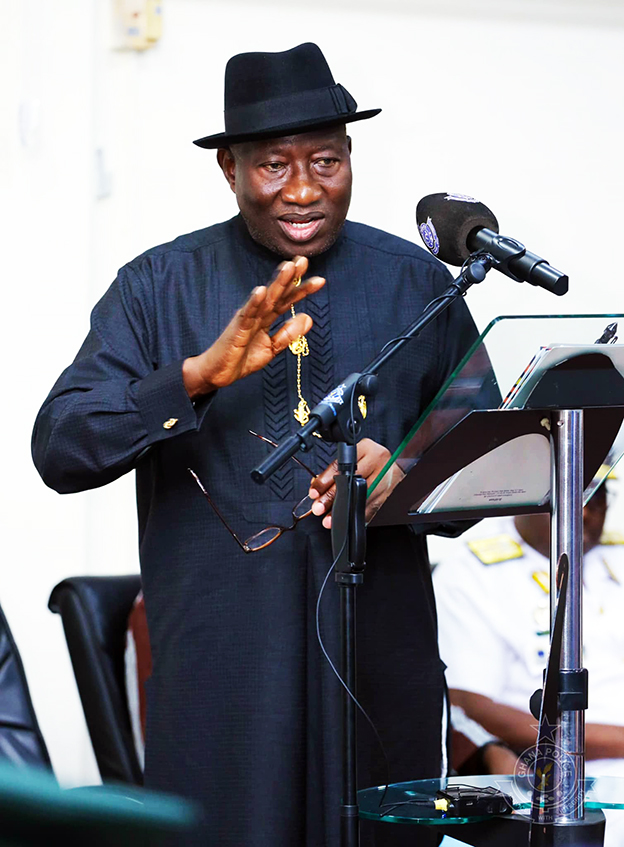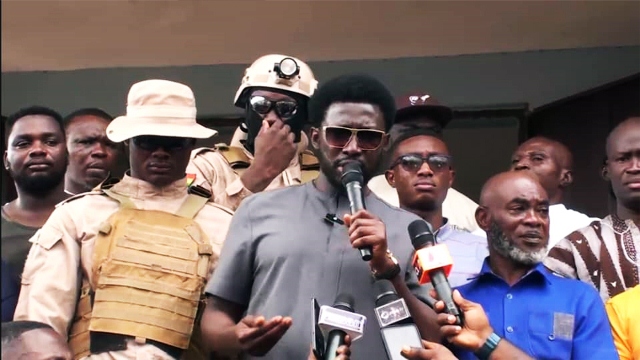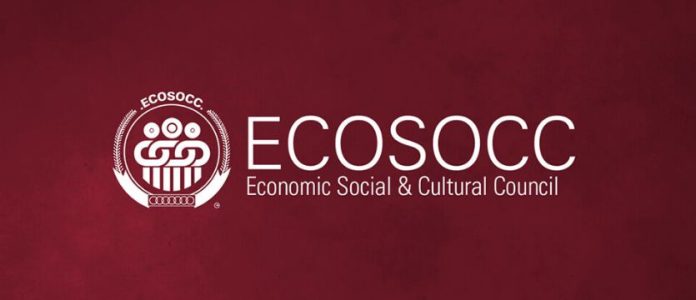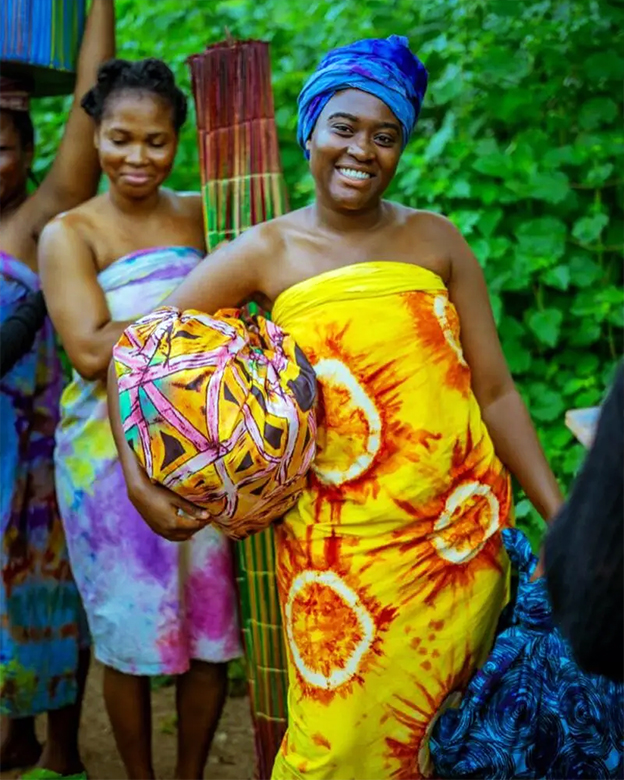The President of the Ghana Union of Traders Association (GUTA), Dr. Joseph Obeng, has issued a strong call to action for the renegotiation of fees and charges imposed by shipping lines operating in Ghana.
Speaking to Eye on Port’s Kennedy Mornah, in support of the recent demonstration by freight forwarders and allied trading associations, Dr. Obeng emphasized the harmful effects that unregulated shipping charges have on Ghana’s economy, businesses, and consumers. His remarks come at a time when tensions between shipping lines and the trading community have reached a boiling point, with allegations of excessive fees, lack of transparency, and even illegal charges.
“Freight forwarders are not protesting for themselves alone. They are fighting for all of us,” Dr. Obeng asserted. He explained that the cascading effects of these arbitrary fees contribute to a significant rise in the cost of goods on the Ghanaian market, exacerbating inflation and reducing the purchasing power of ordinary citizens.
Dr. Obeng framed the freight forwarders’ protest as a fight not just for themselves but for the entire trading community. This perspective highlights the interconnected nature of shipping charges and their broader economic impact. What may seem like a technical issue—unjustified fees in shipping—ultimately translates into higher prices for goods on the market, straining both businesses and consumers alike.
He also pointed out that the freight forwarders’ efforts reflect their frustrations over a prolonged period of engagement with stakeholders, where no concrete resolutions have been reached. Their call for fairness resonates with thousands of traders, many of whom are struggling to absorb the mounting costs associated with import and export processes. Dr. Obeng emphasized that excessive shipping charges undermine the competitiveness of local businesses and raise prices for goods on the market.
Dr. Obeng’s concerns center on the lack of transparency surrounding many of the fees charged by shipping lines. He highlighted that traders and freight forwarders often do not understand what specific services they are paying for due to a lack of detailed breakdowns from the shipping companies. Many shipping contracts do not clearly define costs, which allows these companies to impose arbitrary fees at their discretion, he said.
On local administration charges, the GUTA President said, “We have stated that we want everything embedded in the freight charge, and then we pay it upfront. When we tell them that, they are afraid to do that because they know that when one shipping line charge is higher than the other, people will shop and get the cheaper one, and so they all come and say that no, we have to do the local administrative charges outside of the freight charges. Clearly, they are doing everything to surcharge the good people of Ghana, and that’s why prices of goods and services have gone up,” he lamented.
Dr. Obeng described this practice as exploitative, especially when traders have no recourse to dispute the charges. He further called on the government to intervene, stressing that Ghanaian businesses are suffering due to the predatory practices of shipping lines.
One of the more alarming revelations made by Dr. Obeng during his address was the sheer scale of foreign exchange lost due to excessive charges levied by shipping lines. He noted that Ghana’s dependence on imported goods makes the country vulnerable to the predatory fees of shipping lines, most of which are foreign-owned.
He estimated that Ghana loses more than $500 million annually to shipping-related fees, a figure that puts immense pressure on the country’s forex. This loss, he explained, is unsustainable for a country that already faces challenges in maintaining currency stability.
The depletion of foreign exchange reserves has far-reaching consequences, contributing to currency depreciation, rising inflation, and higher import costs for both businesses and consumers, he noted. His remarks underscored the urgency for decisive action to regulate the fees and protect Ghana’s economic interests.
Re-echoing these sentiments on the same Eye on Port platform, Forwarder Johnny Mantey, Chairman of the Ghana Institute of Freight Forwarders (GIFF) in Tema, raised critical points regarding the impact of these fees on the freight forwarding industry.
The freight forwarder indicated that the term “illegitimate” used to describe these fees by the lines was also used by the Union of African Shippers’ Authorities, signalling a systemic problem with the practices of these shipping lines.
He said the shipping lines in the country who are “running riot in Ghana” have for years deliberately snubbed the Ghana Shippers’ Authority in negotiating fees and charges, and the government must ensure that stops immediately.
Mr. Mantey expressed deep concern over the increasing financial burden placed on freight forwarders and traders in Ghana. He emphasized that many freight forwarders are struggling to remain viable due to the exorbitant charges they encounter when moving goods through the ports.
During the discussion, Johnny Mantey highlighted the lack of transparency in the fee structures set by shipping lines. This inconsistency is remarkably glaring considering that these fees are not uniform with international practice, citing the case of the disparity in local administration charges between Ghana and neighbouring Togo.
Forwarder Mantey called for immediate regulatory intervention to address this issue.
“From the port of origin, before your cargo is put on the vessel, they charge you an administrative fee. When cargo gets to town, what is the essence of another administrative fee? What are you administrating on the container?” he bemoaned.
“Go to China; go to India. go to neighbouring Togo, apart from them even charging in their local currency, they are charging per Bill of Lading. That is, if you have 10 containers on one BL, and it’s 200 Chinese Yuan per BL, one is 200 Chinese Yuan. But in Ghana it is times 10 for one BL,” he added.
One peculiar and thorny matter is the penalty charged on withholding or non-clearance of shipping containers within the stipulated duration for clearance known as demurrage. This fee, according to trading practitioners, is charged on weekends and holidays, despite these shipping agencies not working on these days.
Forwarder Johnny Mantey objected to assertions that shipping agencies in Ghana have activated online platforms for shipping clearance for use during weekends and holidays, indicating that such platforms are not effective if available.
Simply put, the Chairman of Tema GIFF said whatever rhetoric is being populated by local spokespersons of the shipping line and agencies “does not reflect the reality on the ground.”
Another key issue raised by the two was the use of arbitrary exchange rates by shipping lines. According to them, many shipping companies do not adhere to the official exchange rates provided by the Bank of Ghana. Instead, they use their own inflated rates, further increasing the costs for traders who are already grappling with the financial pressures of high fees.
“Ghana Shippers’ Authority and other stakeholders travel to the sub region to investigate some of these things because we have been complaining. The cost component of Shipping Lines in the whole clearing process in Togo is about 1%, while that of Ghana is almost 6%,” the veteran trader, Dr. Obeng, disclosed.
In the face of these challenges, Dr. Obeng expressed optimism about the recently passed Ghana Shippers’ Authority Law, which seeks to regulate the fees imposed by shipping lines. The law is designed to give the Ghana Shippers’ Authority (GSA) the power to scrutinize and approve all charges levied by shipping lines, ensuring that they are fair, transparent, and justifiable.
“The arbitrariness must stop,” Dr. Obeng declared. “With this law, no shipping line can impose fees without the approval of the Ghana Shippers’ Authority.”
“The time has come for shipping lines to respect the Ghana Shippers’ Authority and our laws. If they cannot operate within our regulations, they should reconsider their place in this market,” he cautioned.
This new regulatory framework is seen as a significant victory for the trading community, which has long called for greater oversight of shipping charges.
However, Dr. Obeng also warned that the mere existence of the law is not enough. It must be effectively enforced to bring about the desired changes.

